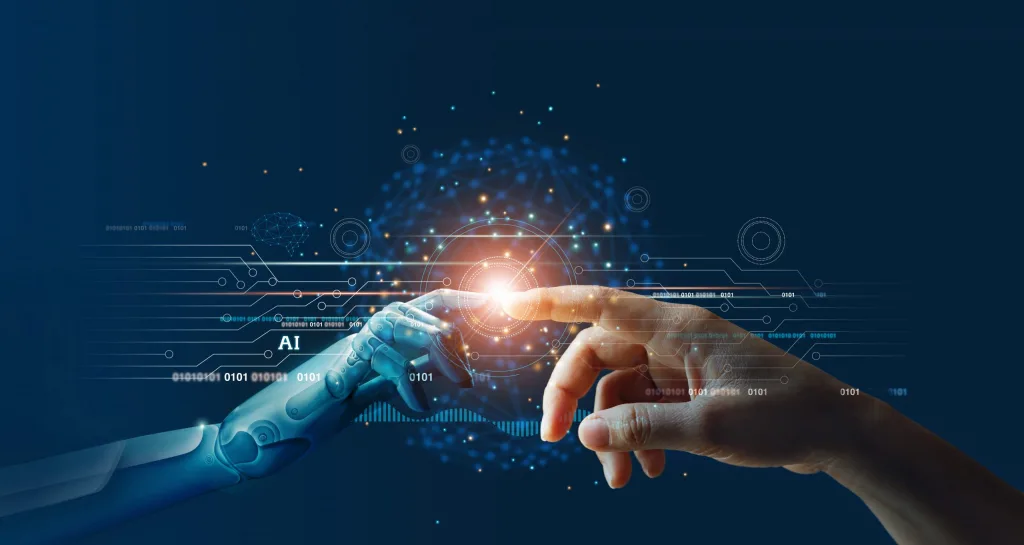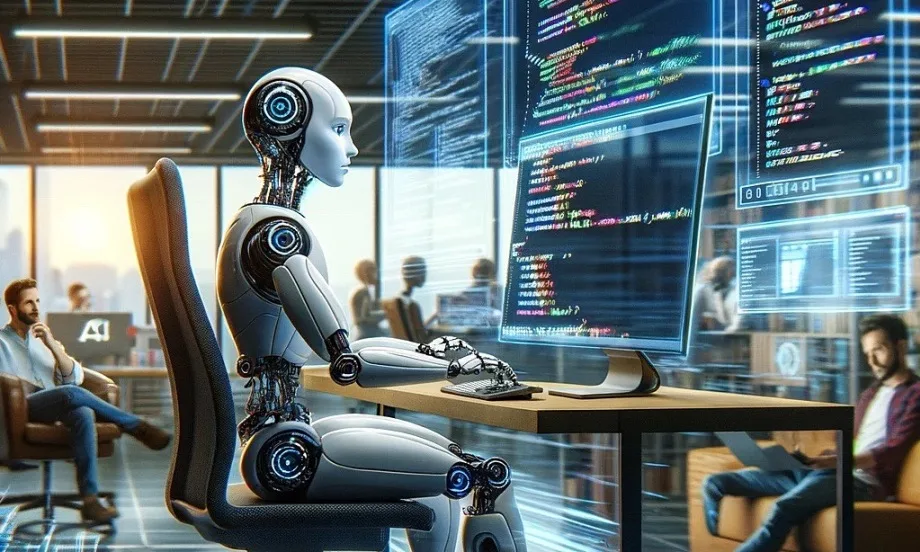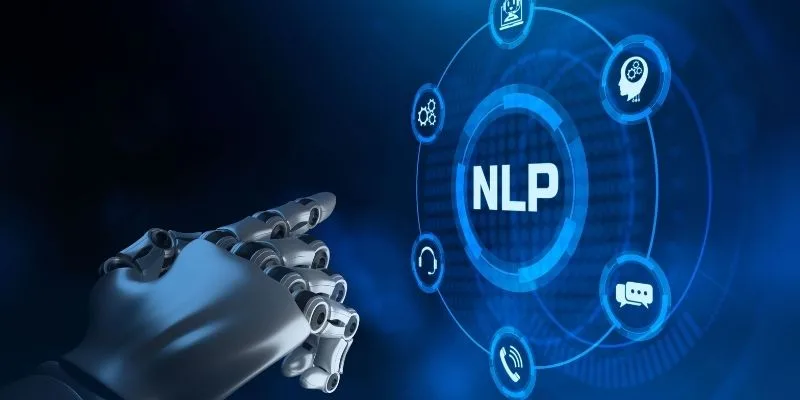AI Technology & Software Development
AI technology is revolutionizing the way we develop software, from automating complex processes to optimizing performance and user experience. This article delves deeper into the intersection of AI and software development, offering fresh perspectives on the future of the tech industry.

Challenges of AI in Software Testing
Businesses can achieve significant benefits by adopting AI in software testing. However, certain challenges are associated with this approach:
Lack of Quality Training Data
Limited and poor-quality data can be a major roadblock when implementing AI in software testing. According to a report, poor data can cost organizations an average of $15 million per year. Therefore, to effectively use AI, accurate and clean data labeling is crucial. Organizations must protect the data used by AI models and ensure compliance with regulations such as GDPR and CCPA.
Integration with Existing Workflows
Another challenge in using AI for software testing is integrating it smoothly with existing testing methods. Many organizations have well-established processes and systems, making the implementation of AI tools difficult.
Careful planning and coordination are essential to align AI tools with current workflows without causing significant disruption. Additionally, training testers on how to use and implement AI in the testing process is crucial for a successful integration.
Why Should Companies Implement AI Testing in Processes?

AI testing offers significant advantages over conventional software testing by harnessing AI for dynamic test case generation, self-healing test automation, intelligent test execution prioritization, and cognitive testing capabilities.
Unlike traditional automation, AI testing tools generate test scripts using visual models, automatically adapt to application changes, identify potential defects, and automate complex tasks. This approach enhances both efficiency and test coverage, leading to more robust and reliable software.
How Does AI Impact Software Development
As AI technology rapidly advances, Japanese tech companies are aiming leading the way in integrating AI into everyday life. The field of robotics offers some of the most exciting prospects for AI, enabling robots to not only mimic human activities but also learn and adapt as they perform tasks. Home assistant robots and automated delivery robots may soon become commonplace, assisting with routine tasks and improving through their interactions with us.
AI has already permeated many aspects of our daily lives. Even something as straightforward as an online photo editor can leverage advanced AI-powered tools to enhance user experience. For instance, Capcut employs deep learning AI algorithms to automatically color correct photos, delivering stunning results by adjusting colors, contrast, saturation, and exposure for optimal satisfaction.

The Role of AI in Software Development
In today’s rapidly evolving landscape of information technology, AI has become integral to the software creation process. AI significantly enhances software design methods, leading to the development of higher-quality applications compared to traditional methods. Here’s a closer look at how AI contributes to various stages of software development.
Data Collection and Utilization
AI plays a crucial role in gathering and synthesizing data from the Internet and customer requests. Without AI, achieving effective data collection would be a challenging task.
Test Automation
Manual testing often involves repetitive tasks to uncover unforeseen vulnerabilities, demanding considerable effort from testers. AI automates these tests, allowing technicians to focus on more complex goals, thus improving the overall quality of software development.
Creating Automated Testing Environments
AI employs scientific algorithms to analyze data from previous tests, generating new, more effective test environments for defect identification.
System Maintenance
Maintaining complex systems is challenging due to the growing volume and complexity of information. AI can identify shortcomings in test sets and propose solutions to enhance maintenance processes, making system upkeep more efficient and effective.
Aspects of Software Development Impacted by AI
- Requirement Gathering and Analysis
AI helps in accurately gathering and analyzing requirements from stakeholders, ensuring that software specifications are precise and comprehensive.
- Design and Prototyping
AI tools can assist in generating design options and creating prototypes rapidly, allowing for more efficient and innovative design processes.
- Code Generation
AI-driven code generation tools can automate the writing of code, increasing productivity and reducing the chances of human error.
- Testing and Quality Assurance
AI automates various testing processes, including unit testing, integration testing, and regression testing. This ensures thorough and efficient testing, leading to higher quality software.
- Bug Detection and Fixing
AI algorithms can detect bugs and vulnerabilities in code more effectively than traditional methods, and some AI tools can even suggest or implement fixes automatically.
- Project Management
AI tools help in project management by predicting project timelines, allocating resources efficiently, and identifying potential risks before they become critical issues.
- Performance Optimization
AI analyzes system performance and suggests optimizations, ensuring that the software runs efficiently and effectively under various conditions.
- User Experience and Interface Design
AI can analyze user behavior and preferences to optimize user interface designs, enhancing the overall user experience.
- Security
AI enhances software security by identifying potential threats and vulnerabilities, enabling proactive measures to safeguard the software against attacks.
- Maintenance and Updates
AI assists in the ongoing maintenance and updating of software by predicting when updates are needed and automating the update process, reducing downtime and improving software reliability.
- Documentation
AI tools can automate the generation of documentation, making it easier for developers to maintain and update project documentation as the software evolves.
- Customization and Personalization
AI enables the development of software that can adapt and personalize features based on individual user preferences and behaviors, improving user satisfaction and engagement.
- Collaboration and Communication
AI facilitates better collaboration and communication among development team members by providing tools that track progress, manage tasks, and ensure that everyone is aligned on project goals and updates.
By impacting these various aspects, AI significantly enhances the efficiency, quality, and innovation in software development processes.
AI Tools Frequently Applied in Software Development

Automated Error Analysis and Handling
AI and machine learning tools analyze development system logs to automatically detect technical errors. These errors are then addressed, and the software is activated without any human intervention.
Natural Language Processing Tools
Natural Language Processing (NLP) is a branch of AI that enables machines to comprehend human language. NLP merges linguistics and computer science to study language principles and structures, creating systems that can analyze and understand human language. AI-powered NLP tools can convert software testing content into automated tests, facilitating the creation of test environments that meet the requirements of testers, developers, and customers.
Anomaly Detection
AI-driven anomaly detection tools can analyze vast amounts of data to identify errors. These tools notify software developers, assisting them in their software testing efforts. By simplifying the testing process and ensuring reliability, these tools help create high-quality applications that meet the demands of the technology market.
The Future Trends of AI Application in Software Development
As AI continues to evolve and the demand for software grows, its impact on software development will become increasingly evident. AI will be more widely adopted, with algorithms being enhanced to help businesses achieve their technological goals. Additionally, AI will integrate with emerging technologies such as IoT, Blockchain, and new AI-based platforms.

Experts predict that AI will experience explosive growth through 2025. According to the World Economic Forum (WEF), AI could replace 85 million jobs by 2025, highlighting its significant impact on labor market trends. Consequently, the IT workforce, especially in software technology, will need to evolve in both quantity and quality to meet market demands.
Alongside expanding and improving AI capabilities, there will be a focus on analyzing the ethical implications and consequences of AI usage in technology development. Experts and stakeholders will need to establish ethical regulations and principles governing the use of AI in all aspects of application development.
The application of AI in software development marks a significant advancement in the industry. This trend not only benefits businesses by meeting their technological needs but also addresses the broader market’s substantial demand for innovative technology solutions.
With a leadership team of seasoned experts from Japan and Vietnamese professionals who have lived and worked in Japan for many years, PadiTech offers clients advanced technology solutions implemented systematically and professionally according to international standards.
PadiTech has an ambition to become a pioneer in applying advanced technology, contributing to the growth and development of businesses.






